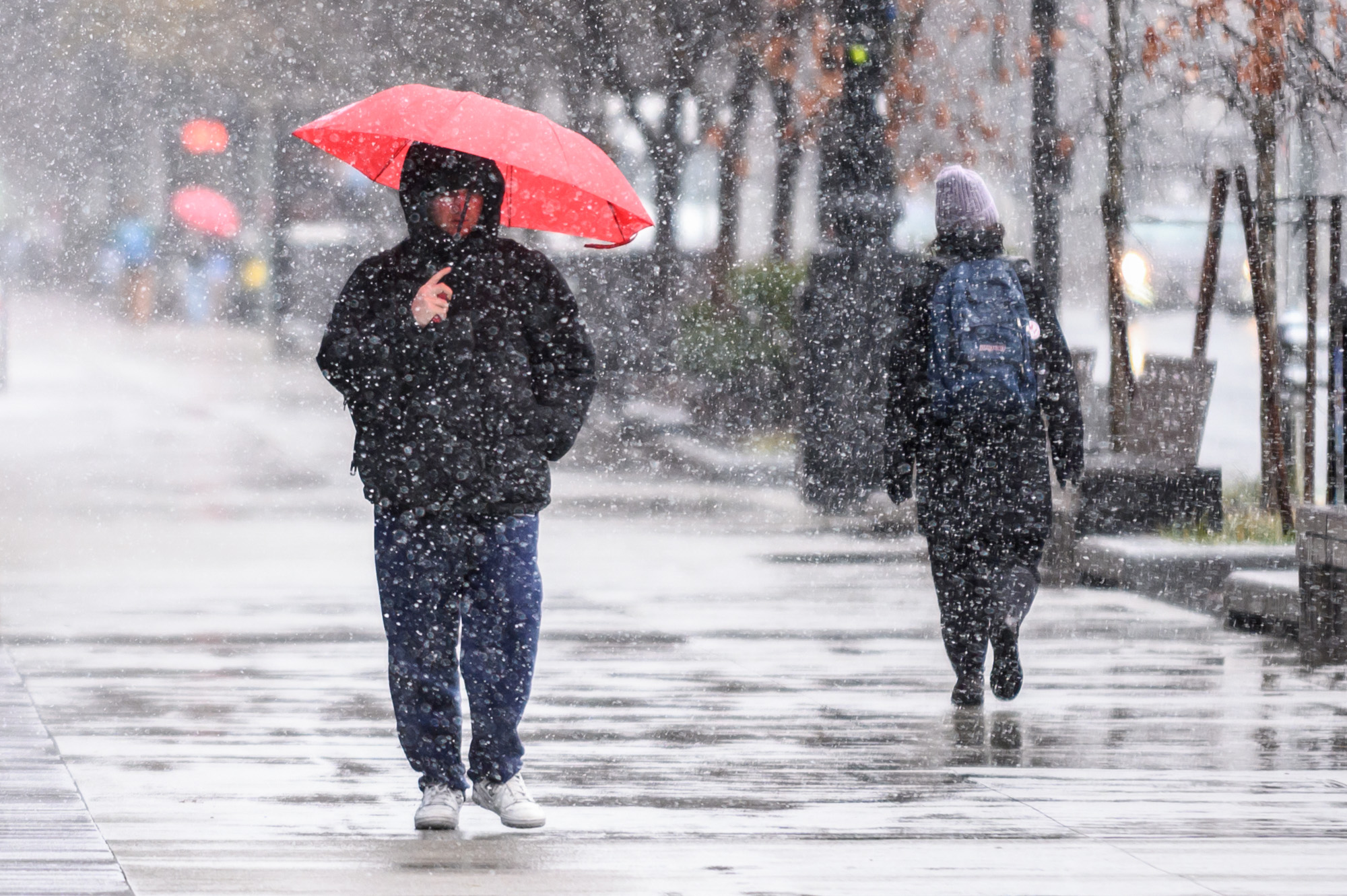As Boston braced for a major winter storm, schools closed and plows readied to receive about a foot of snowfall.

However, falling snow formed puddles and not piles as it hit Boston streets today. Following a sunny, 60 degree day on Saturday, concerns are arising surrounding the impact of climate change on winter weather patterns.
National Weather Association meteorologist Rob Megnia said the wet snow is a result of warmer temperatures caused partly by El Niño, a recurring climate phenomenon which influences temperature and precipitation levels.
“[In] December … the average temperature was five degrees above normal [in Boston], and in January, the average temperature was three degrees above normal,” Megnia said. “A strong El Niño, like we’re experiencing this year, definitely tilts the odds towards warmer and wetter winters in the Northeast.”
Saturday’s warmth was short-lived, as temperatures dropped down to the early-forties by Monday. Mayor Wu issued a snow emergency beginning at 10 p.m. on Monday, but by morning, hopes for snowmen and sledding were dashed as flurries refused to stick to the pavement.
While the recent weather alone might not prove a permanent change in climate, Hessann Farooqi, the executive director of the Boston Climate Action Network, said larger trends towards increased “volatile shifts” in winter weather patterns point to climate change as the cause.
“We’re seeing and noticing a real, remarkable change, and that is right in line with what scientists are saying and have been saying for decades around the effects of climate change,” Farooqi said. “We see weather patterns becoming more and more extreme.”
Farooqi said climate change is contributing to the rising temperatures as well as increased severity of storms, citing a years’ worth of rainfall hitting Boston in the span of two months last year.
“That [hit] communities all over the city. We saw a lot of flooding, for example, in Allston-Brighton,” Farooqi said. “That’s a unique challenge [for] aging stormwater infrastructure and a lack of greenspace on the ground.”

Paul Kirshen, a professor of climate adaptation in the School for the Environment at the University of Massachusetts Boston, wrote in an email that “variability” will increase in weather patterns as climate change progresses.
“We are uncertain what will change with winter storms — but we know our summer and fall hurricanes are increasing in intensity,” Kirshen wrote. “The impacts of our winter storms, however, will be worse because sea levels are higher.”
According to a climate impact report published by Kirshen and hydrologist Ellen Douglas in 2022, if the current rate of greenhouse gas emissions persists, the frequency and intensity of extreme precipitation events will likely increase, while the percentage of precipitation that falls as snow will decrease.
Jeff Smith, who has lived in Boston for nearly 40 years, said “every year is kind of different” when it comes to the city’s weather patterns.
Smith said seven years ago he remembers experiencing about two blizzards every week for about six weeks, a contrast to this winter where snowfall has been scarce and weather has been warmer.
“What’s normal is extremes,” Smith said, referring to the inconsistency in Boston weather patterns over recent years. “It’s definitely climate change.”
As the world warms, a rise in sea levels and flooding is projected to occur in Boston alongside a probable shift in weather patterns.
The risk of coastal flooding in Boston is expected to increase, as sea levels will likely rise by three feet or more by the end of the century, according to Boston’s Environmental Office.
In a press conference Monday, Gov. Maura Healey warned Massachusetts residents of the high risk of flooding in light of the storm.
“As a state, we have seen a lot of flooding this year,” Healey said. “We’re really looking out for our coastal communities and the impact of floods there.”
Farooqi said some of the neighborhoods most vulnerable to flooding include Dorchester, Seaport, parts of Charlestown and East Boston.
Farooqi added that periods of extreme heat caused by global warming will affect areas like Roxbury and Allston the most, due to a lack of trees in the neighborhood combating heat.
“Climate change affects everyone, but not everyone is starting at the same place,” Farooqi said. “Every existing inequity in social, political and economic power exacerbates the climate crisis.”


















































































































